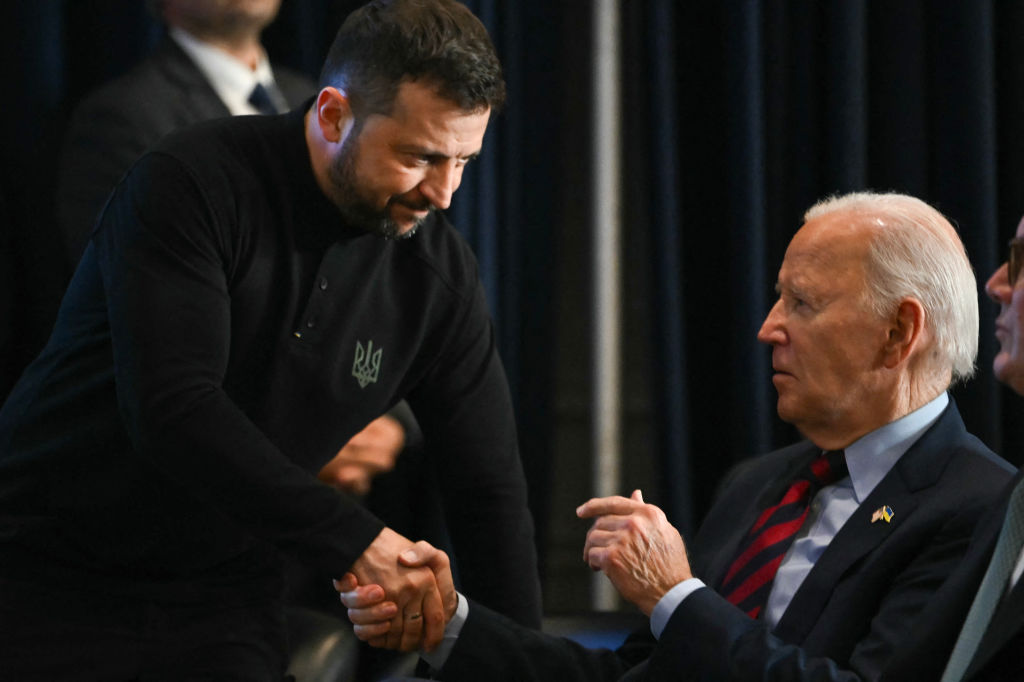President Joe Biden has approved Ukraine’s use of long-range US weapons for strikes against military targets inside Russia. It might seem contradictory, but this decision actually helps his successor Donald Trump’s looming effort to negotiate an end to the war in Ukraine.
Biden’s actions will mean Ukraine can use the ATACMS missile system to reach targets up to 190 miles inside Russia. The UK and France, which have been pushing the US President to make this decision for more than a year now, are highly likely to provide Ukraine with approval to use their own Storm Shadow/SCALP missiles against Russian targets. They were hesitant to do so without prior US approval, due to the risk of allowing Vladimir Putin to fragment Nato’s deterrent posture. But what does this development mean for the future of the war?
At the tactical level, the main benefit for Ukraine is that it can now damage far more key targets in Russia. What’s more, the very threat of these weapons will force Russian and North Korean military units of all kinds to take far greater precautions in concealing their whereabouts.
At the military-strategic level, however, the benefit for Ukraine is relatively limited, as these weapons can’t make up for Russia’s far greater supply of troops and munitions. Still, the weapons offer the incoming Trump administration new leverage to pressure Russia into accepting a peace deal compatible with Ukraine’s long-term sovereignty. When he enters office in January, Trump can now tell Putin that he will keep sending missiles to Ukraine until Russia makes concessions. The President-elect has already indicated that he is aware of the need to impose this pressure on the Kremlin. But by taking this decision now, Biden affords Trump leverage while ensuring that Putin’s anger falls on his outgoing presidency rather than the one set to replace it.
Critics of this decision will warn that it increases the risk of a direct US or Nato confrontation with Russia. Yet it is not Nato which has escalated this conflict. Russia has done just that with its deliberate attacks on apartment buildings and paediatric hospitals, its enjoining of North Korea into the conflict, and its broader campaign of sabotage, arson and act-of-war plots against the West.
These critics have also forgotten a key lesson from the Cold War. Namely, that while deference toward escalation concerns is always important, this must be measured against strategic realities rather than Kremlin rhetoric alone. Putin’s nuclear threats aside, Russia is not going to start a conflict with Nato over this decision for the same reason it did not start a conflict with Nato during the Cold War. Biden’s decision does not threaten Russia’s sovereign existence or Putin’s hold on power, and the Russian President knows he would badly lose both a conventional war and a nuclear war with Nato. To restrict aid to Ukraine simply because of Putin’s rhetoric would allow Russia to secure significant US concessions; in such a scenario, America would have practically no leverage.
A viable peace between Ukraine and Russia is possible, but only if it includes guardrails for Ukrainian sovereignty and mechanisms to prevent Moscow from simply using a deal to reconstitute its forces for a future attack. In that regard, Trump should thank Biden for what he has done here. By playing the hawk, the President has given his successor a chance to offer Putin a choice: does Russia want to face a good cop, or yet another bad cop?











Join the discussion
Join like minded readers that support our journalism by becoming a paid subscriber
To join the discussion in the comments, become a paid subscriber.
Join like minded readers that support our journalism, read unlimited articles and enjoy other subscriber-only benefits.
Subscribe